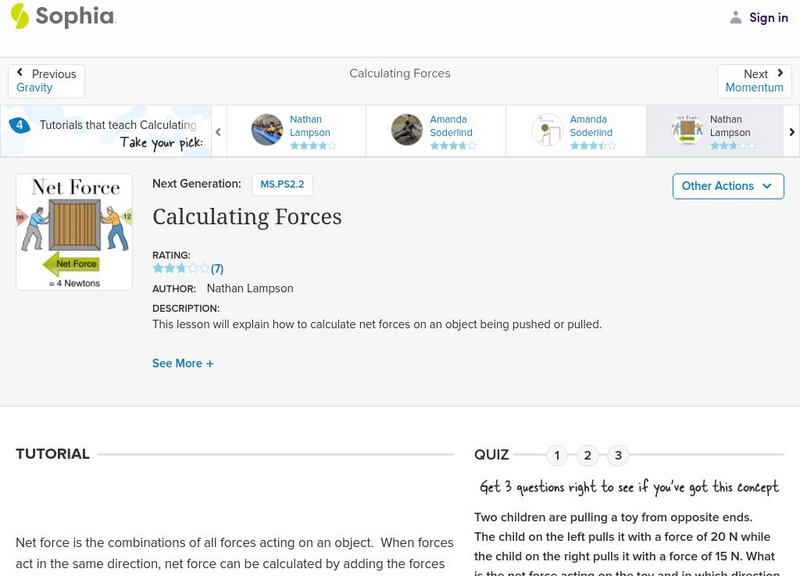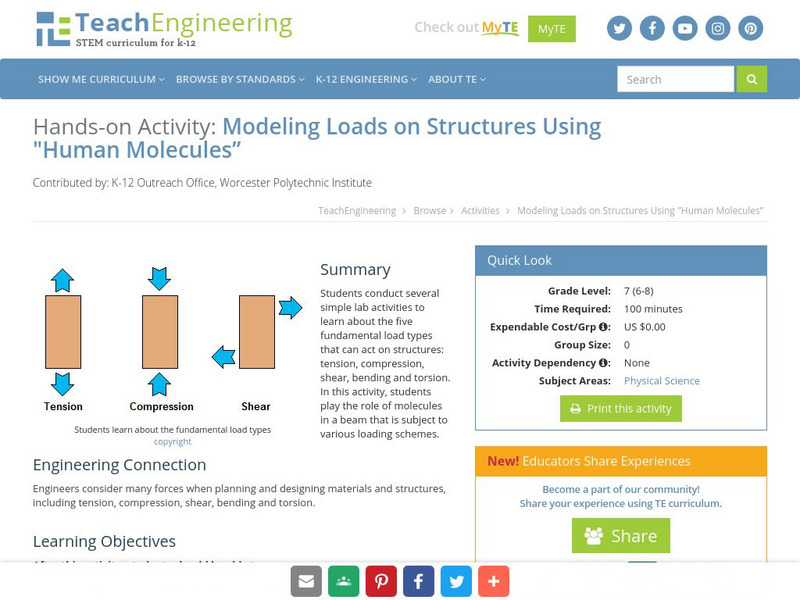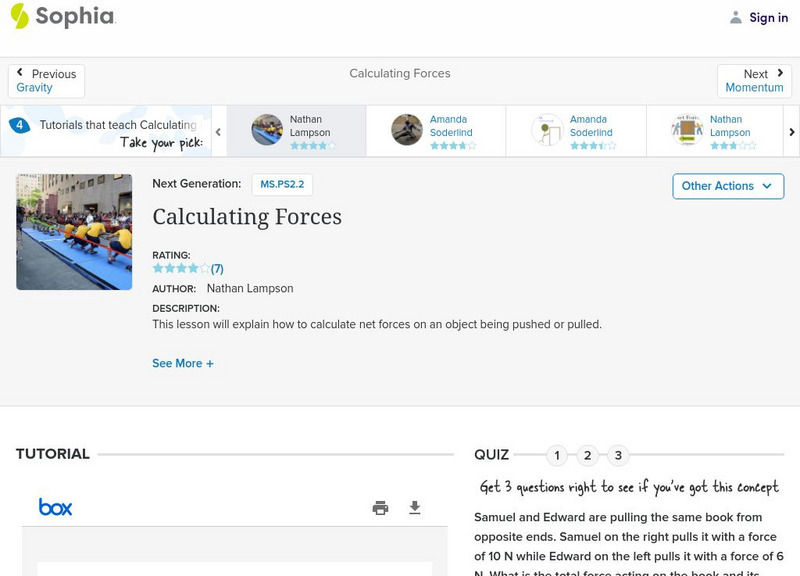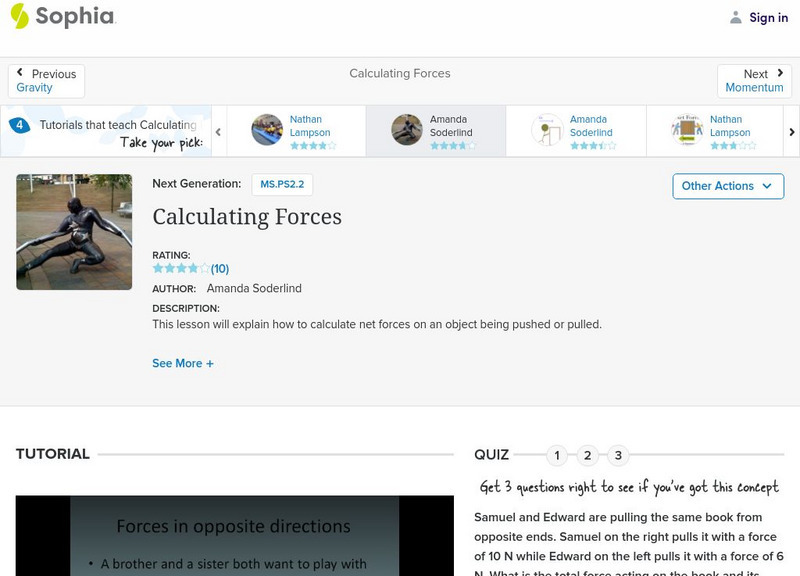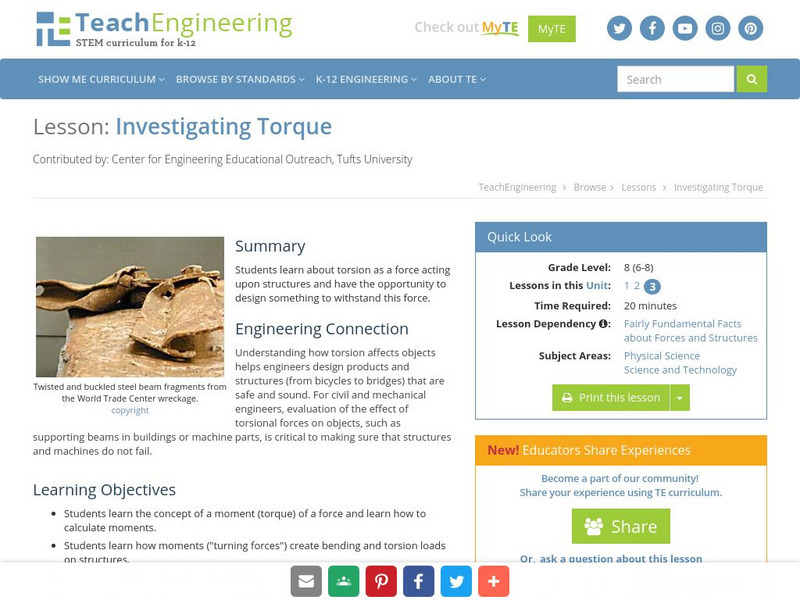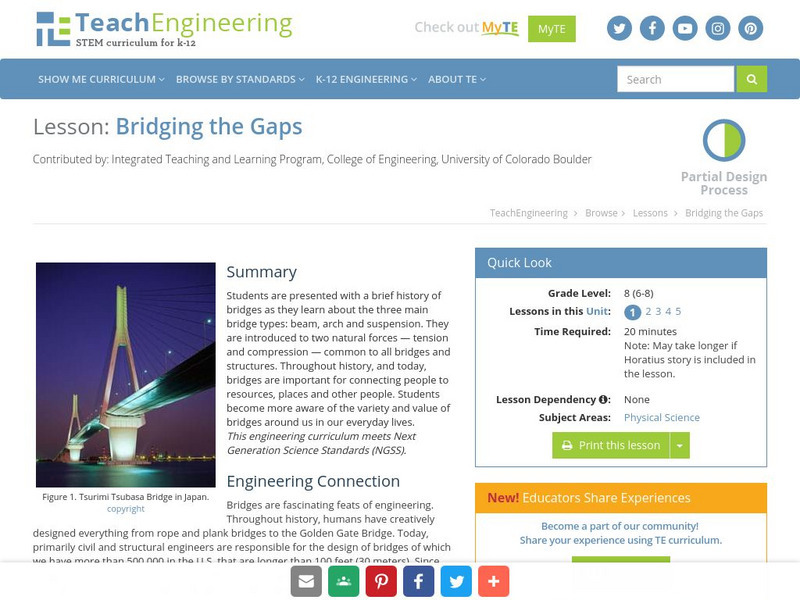Hi, what do you want to do?
TeachEngineering
Teach Engineering: Fairly Fundamental Facts About Forces & Structures
This lesson will introduce students to the five fundamental loads: compression, tension, shear, bending, and torsion.
TeachEngineering
Teach Engineering: Strong as the Weakest Link
To introduce the two types of stress that materials undergo - compression and tension - students examine compressive and tensile forces and learn about bridges and skyscrapers. They construct their own building structure using...
Sophia Learning
Sophia: Calculating Forces: Lesson 2
This lesson will explain how to calculate net forces on an object being pushed or pulled. It is 2 of 4 in the series titled "Calculating Forces."
Sophia Learning
Sophia: Calculating Forces: Lesson 3
This lesson will explain how to calculate net forces on an object being pushed or pulled. It is 3 of 4 in the series titled "Calculating Forces."
TeachEngineering
Teach Engineering: Stressed and Strained
Students are introduced to the concepts of stress and strain with examples that illustrate the characteristics and importance of these forces in our everyday lives. They explore the factors that affect stress, why engineers need to know...
TeachEngineering
Teach Engineering: Forces on the Human Molecule
Students will conduct several simple lab activities to learn about the five fundamental load types that can act on structures: tension, compression, shear, bending, and torsion. In this activity, students will play the role of molecules...
TeachEngineering
Teach Engineering: Building Our Bridge to Fun!
Students identify different bridge designs and construction materials used in modern day engineering. They work in construction teams to create paper bridges and spaghetti bridges based on existing bridge designs. Students progressively...
TeachEngineering
Teach Engineering: Glue Stick Activity
In this activity students will use hot glue gun sticks to show tension, compression and torsion.
Sophia Learning
Sophia: Introduction to Tension: Lesson 1
This lesson introduces the concept of tension. It is 1 of 2 in the series titled "Introduction to Tension."
Sophia Learning
Sophia: Calculating Forces: Lesson 4
This lesson will explain how to calculate net forces on an object being pushed or pulled. It is 4 of 4 in the series titled "Calculating Forces."
Sophia Learning
Sophia: Calculating Forces: Lesson 1
This lesson will explain how to calculate net forces on an object being pushed or pulled. It is 1 of 4 in the series titled "Calculating Forces."
TeachEngineering
Teach Engineering: Investigating Torque
This lesson focuses on torsion as a force acting upon structures. Learners will have the opportunity to design something to withstand this force.
TeachEngineering
Teach Engineering: Bridging the Gaps
Students are presented with a brief history of bridges as they learn about the three main bridge types: beam, arch and suspension. They are introduced to two natural forces - tension and compression - common to all bridges and...
Physics Aviary
Physics Aviary: Practice Problems: Displaced Angle for Accelerating Car
Students must solve for the tension in the rope and the acceleration of the car based on the angle of displacement for a hanging mass.
TeachEngineering
Teach Engineering: Bone Crusher
Students use a tension-compression machine or an alternative bone-breaking setup to see how different bones fracture differently and with different amounts of force, depending on their body locations. Teams determine bone mass and...







